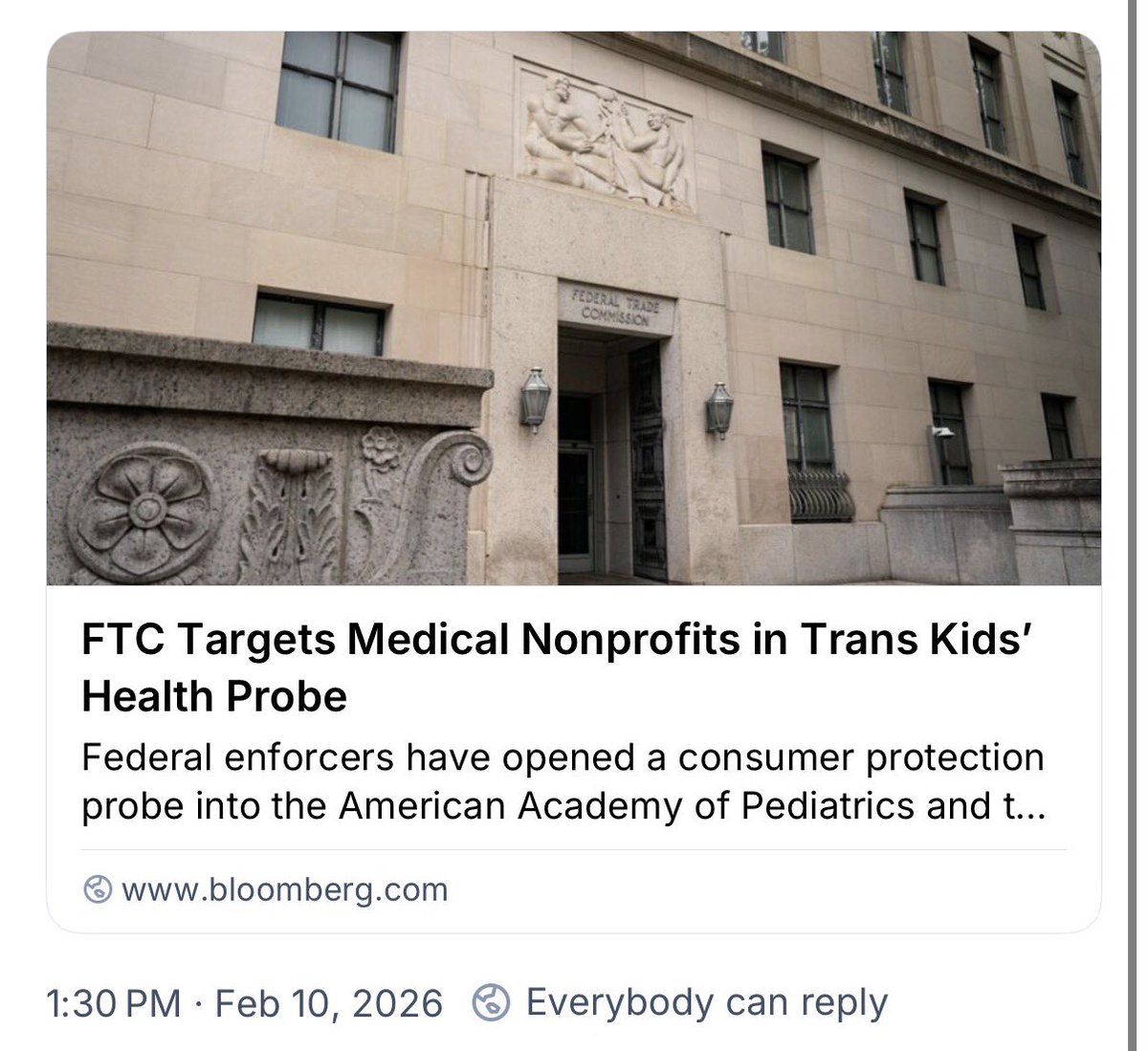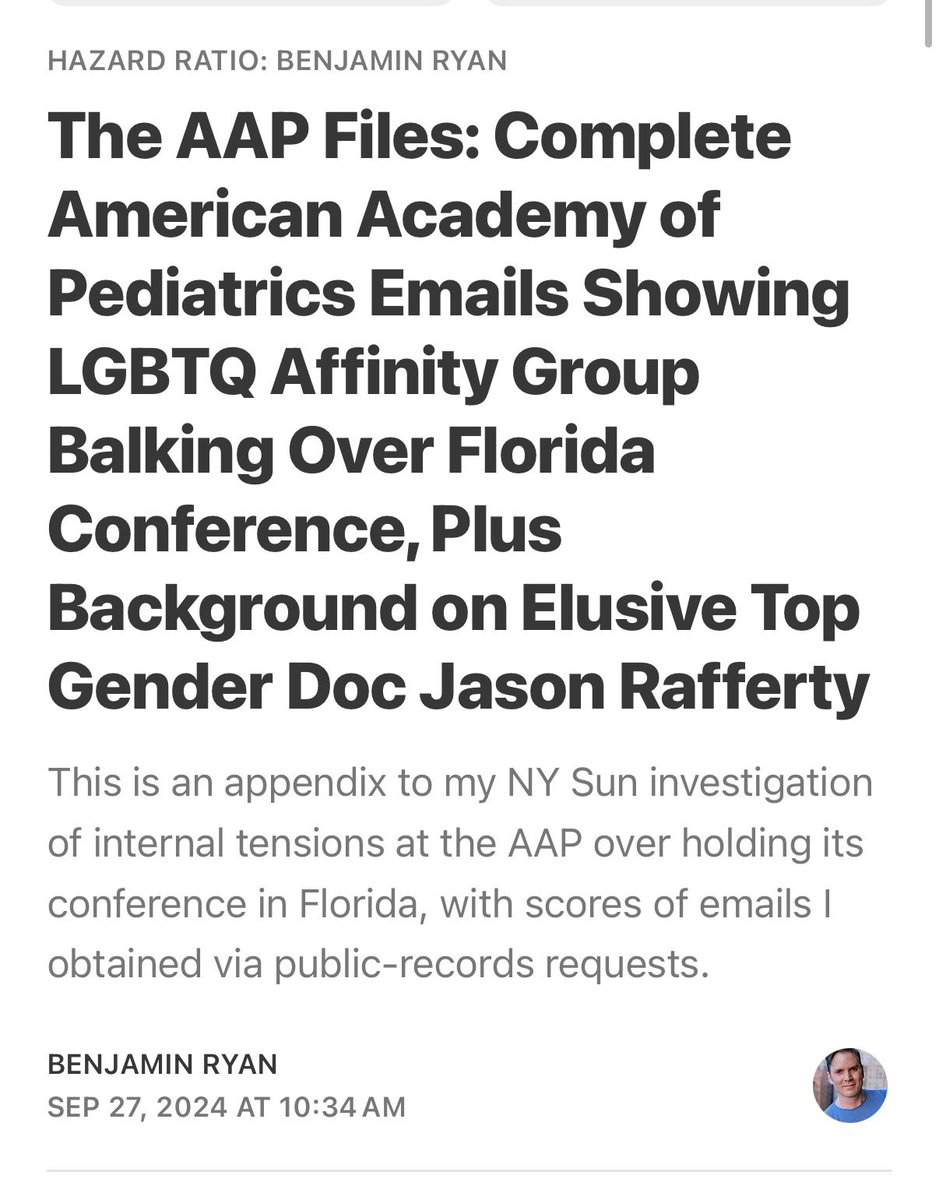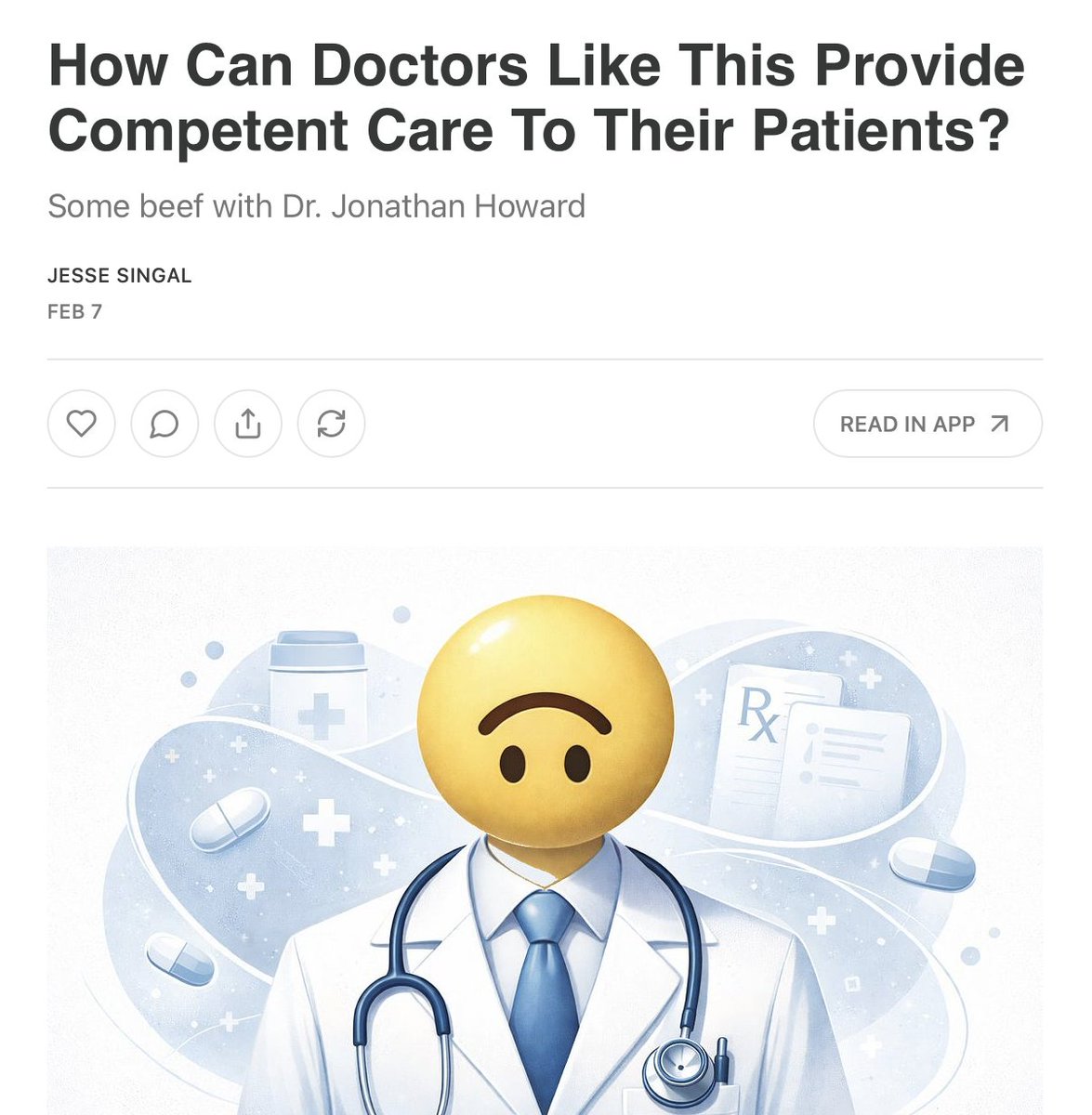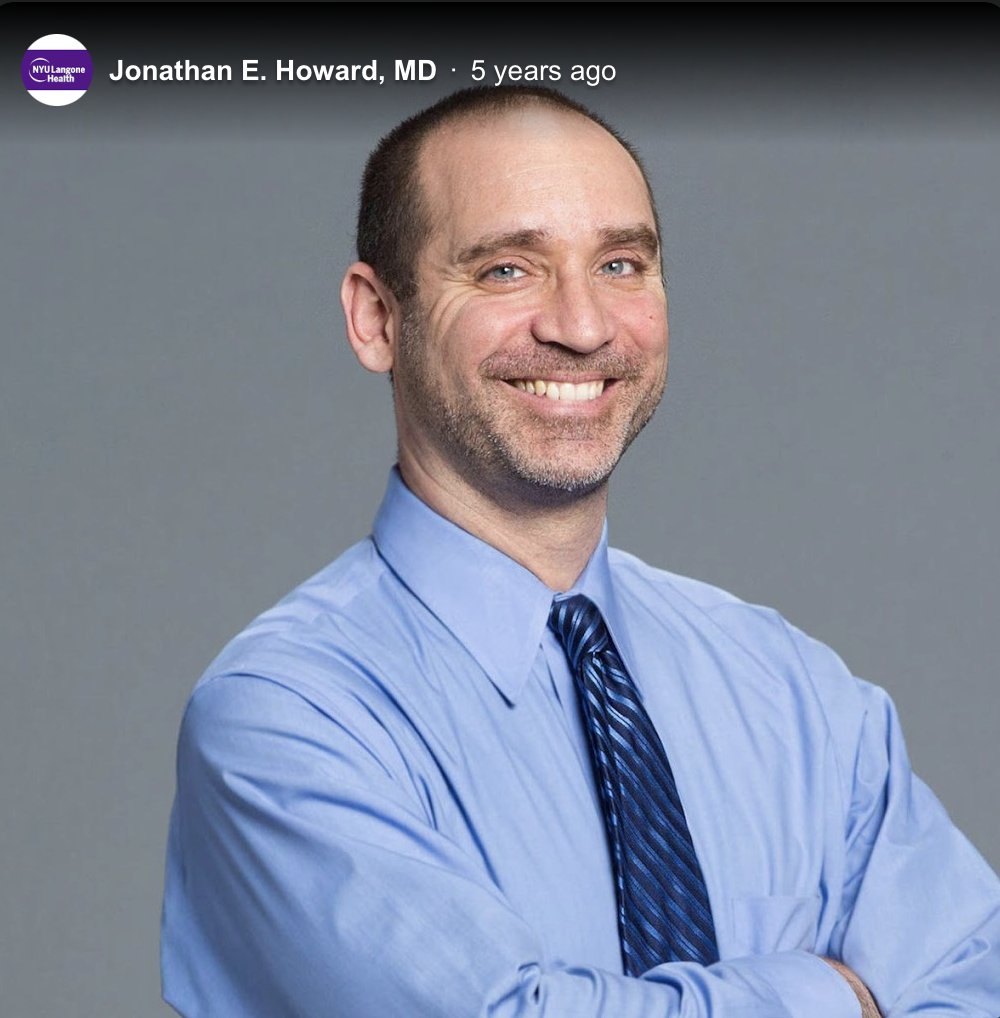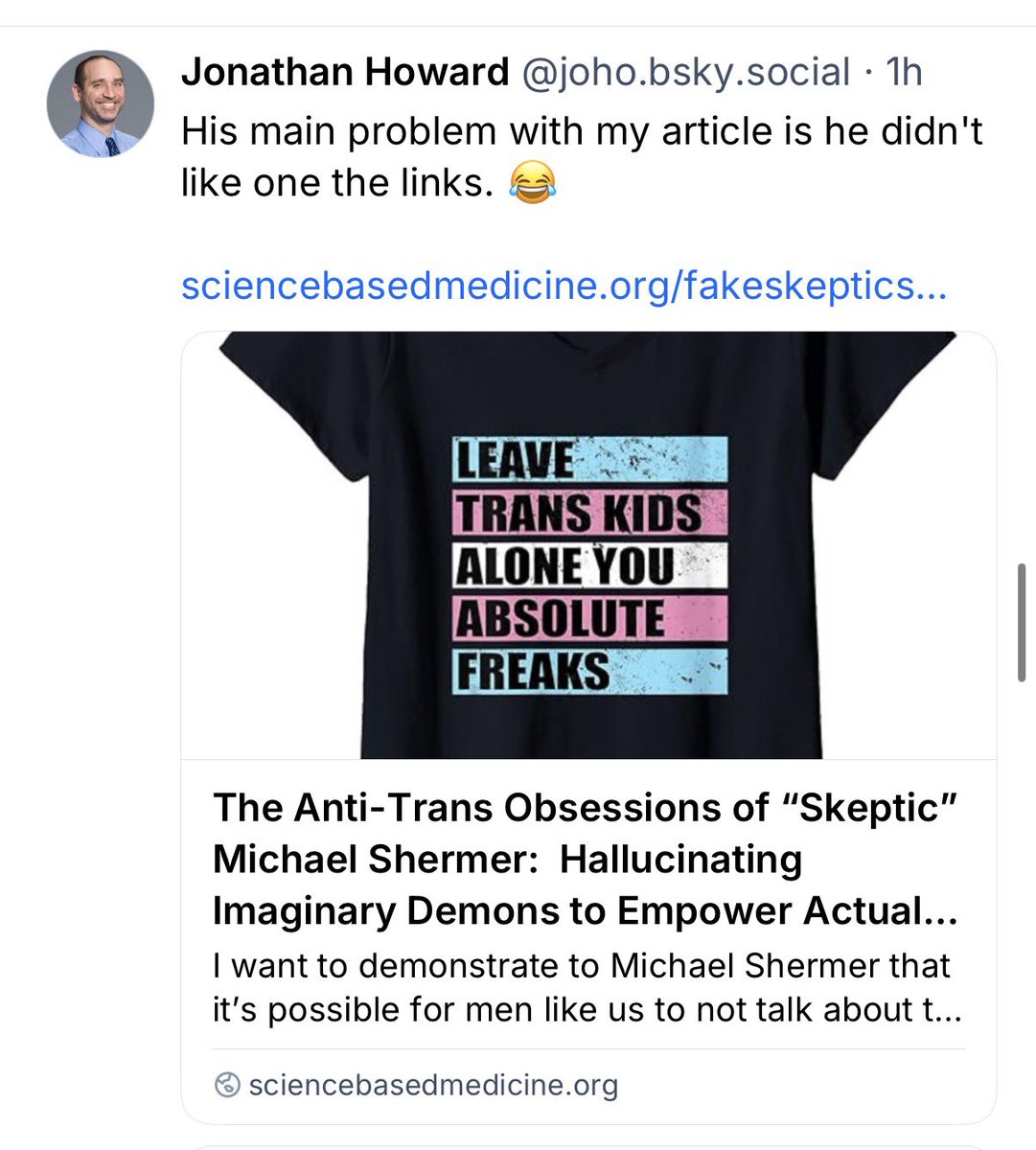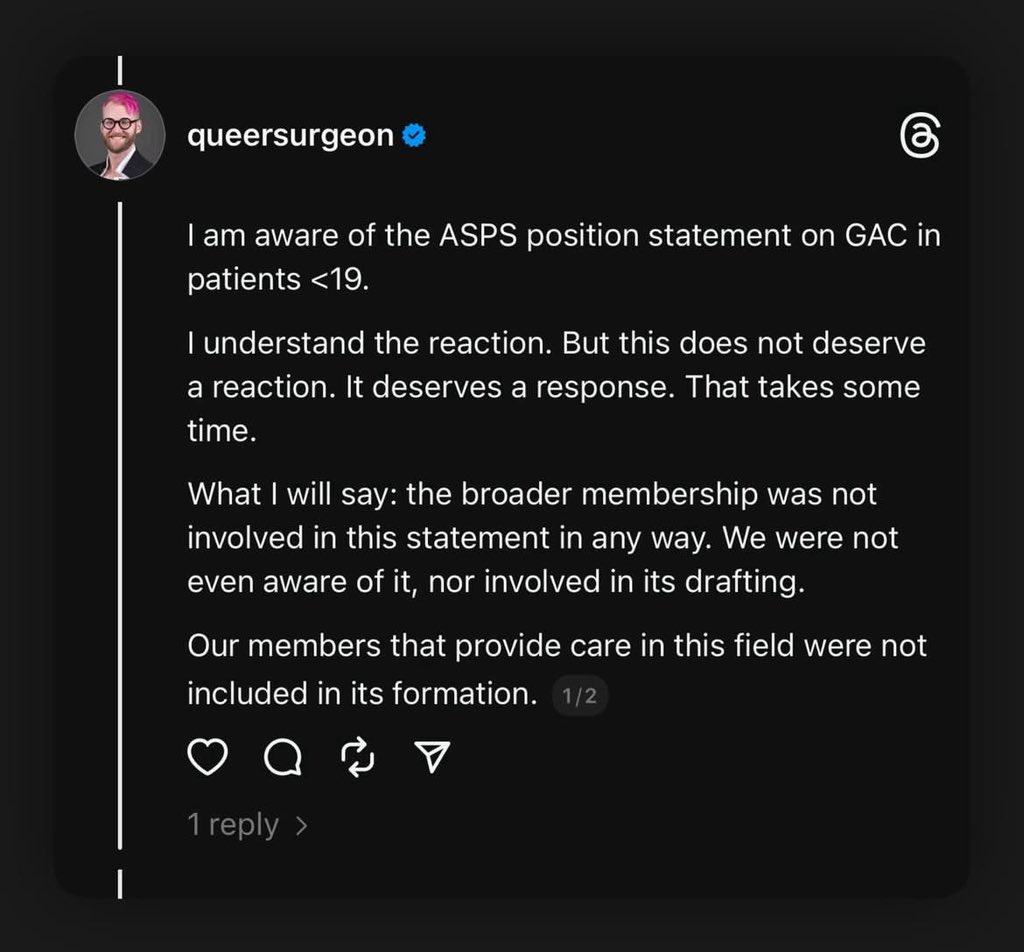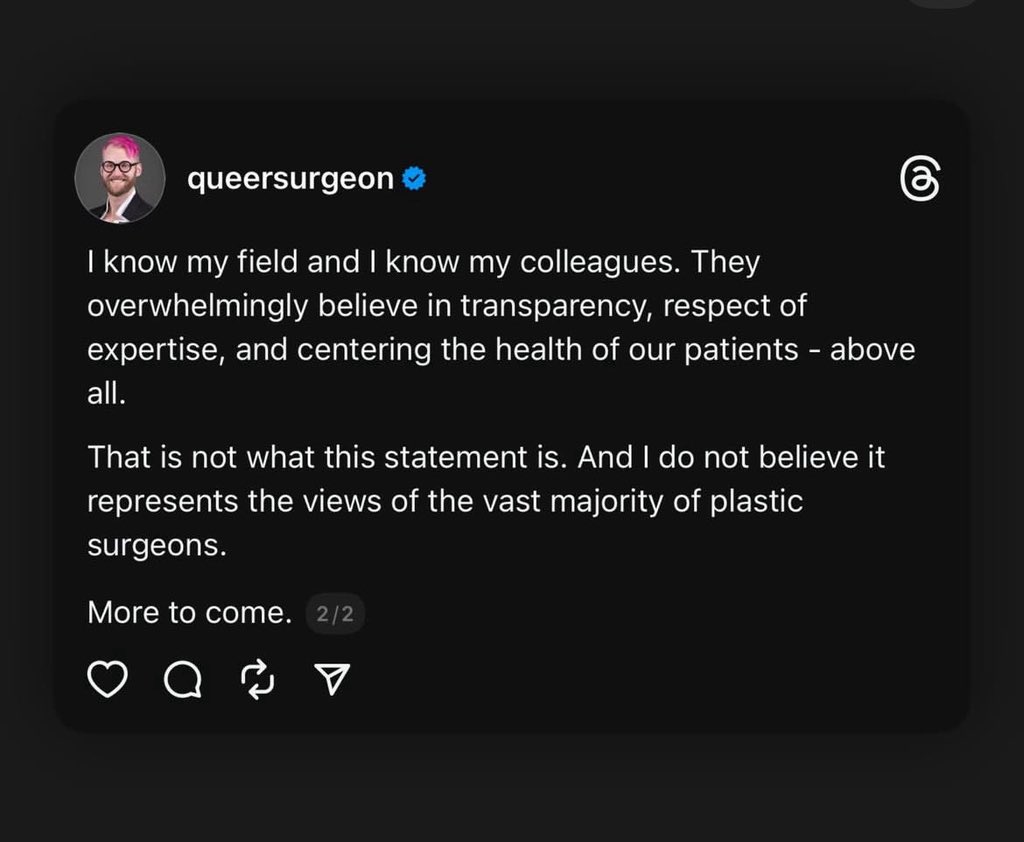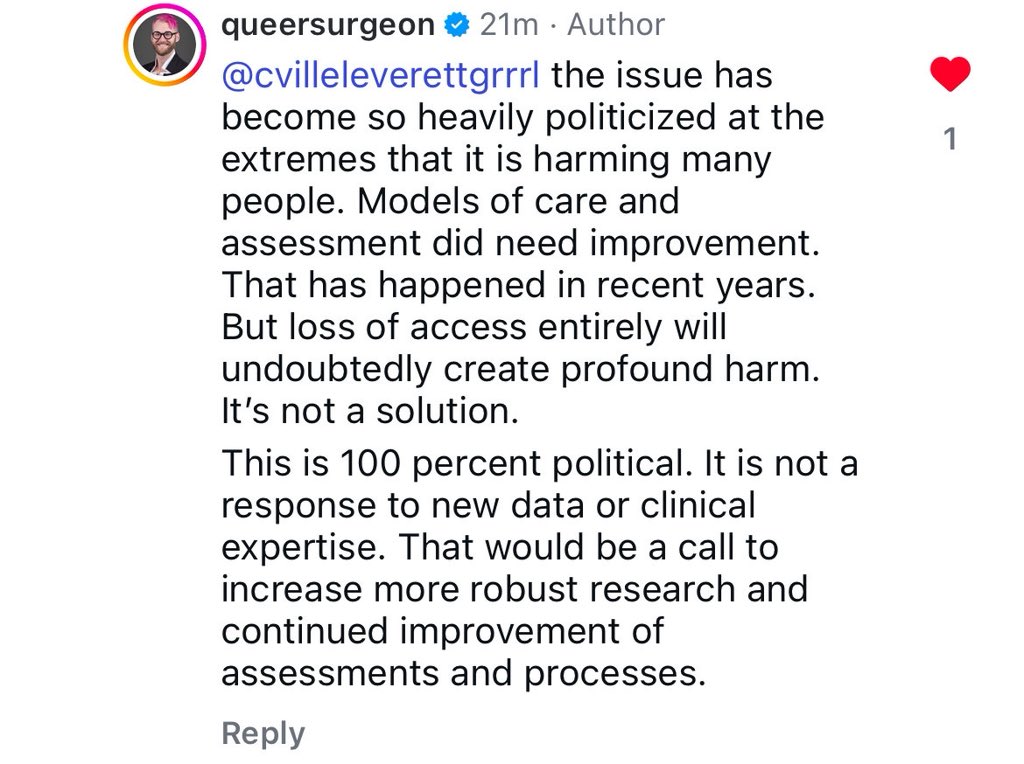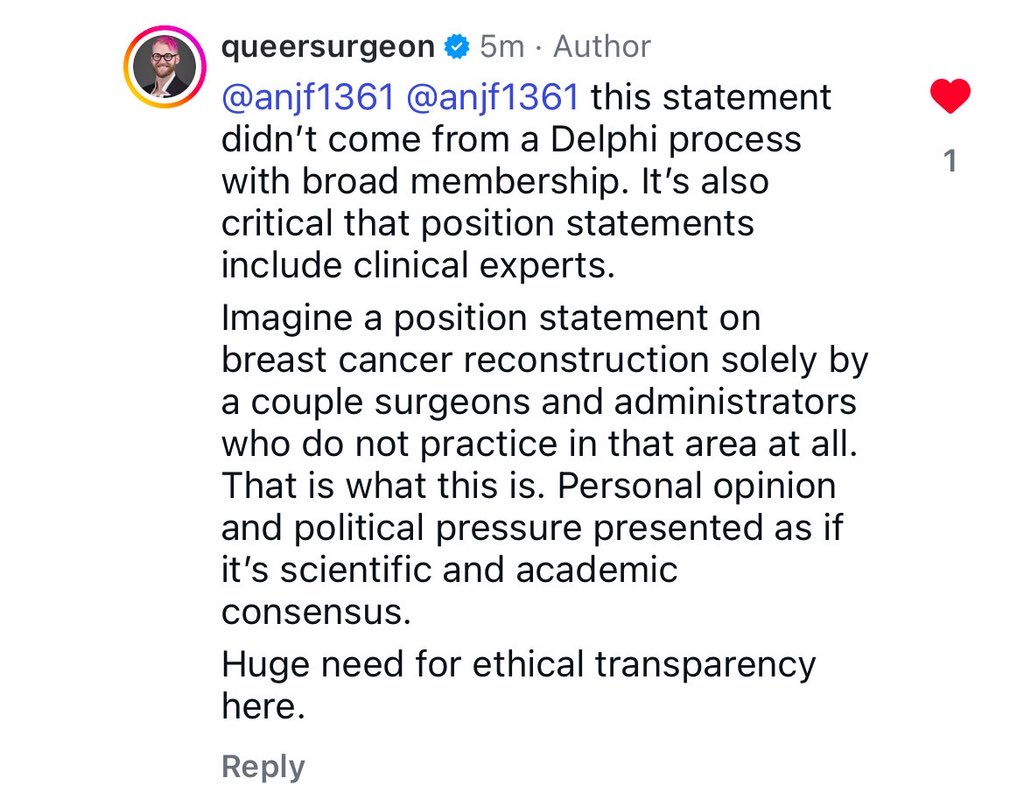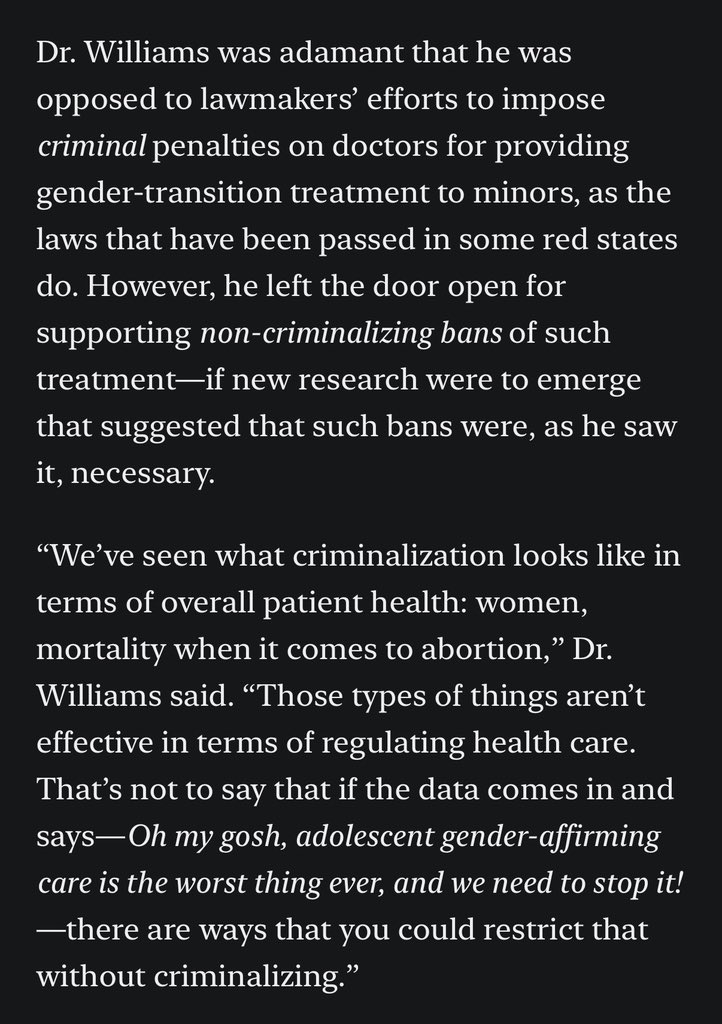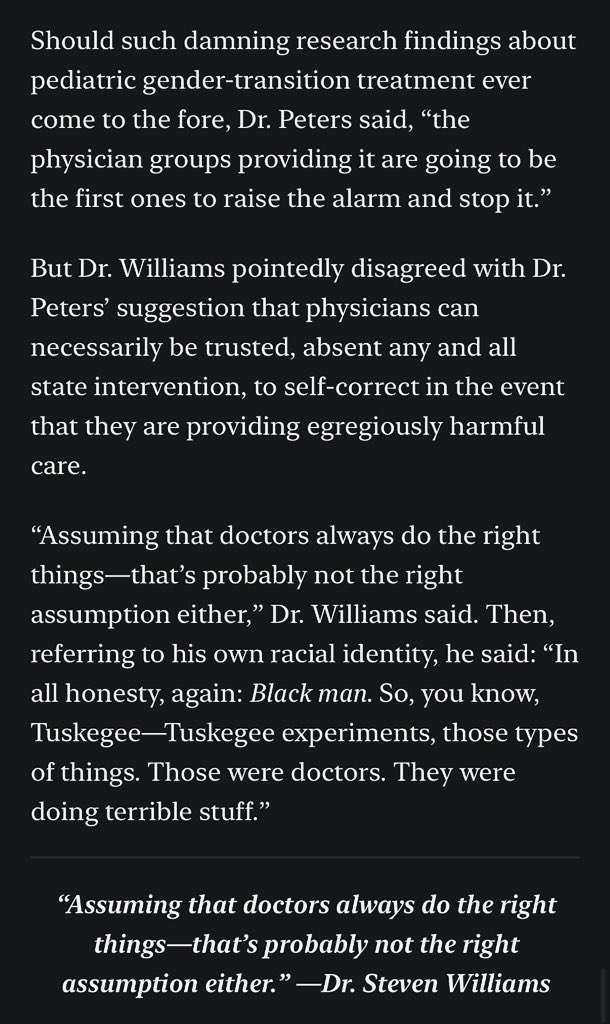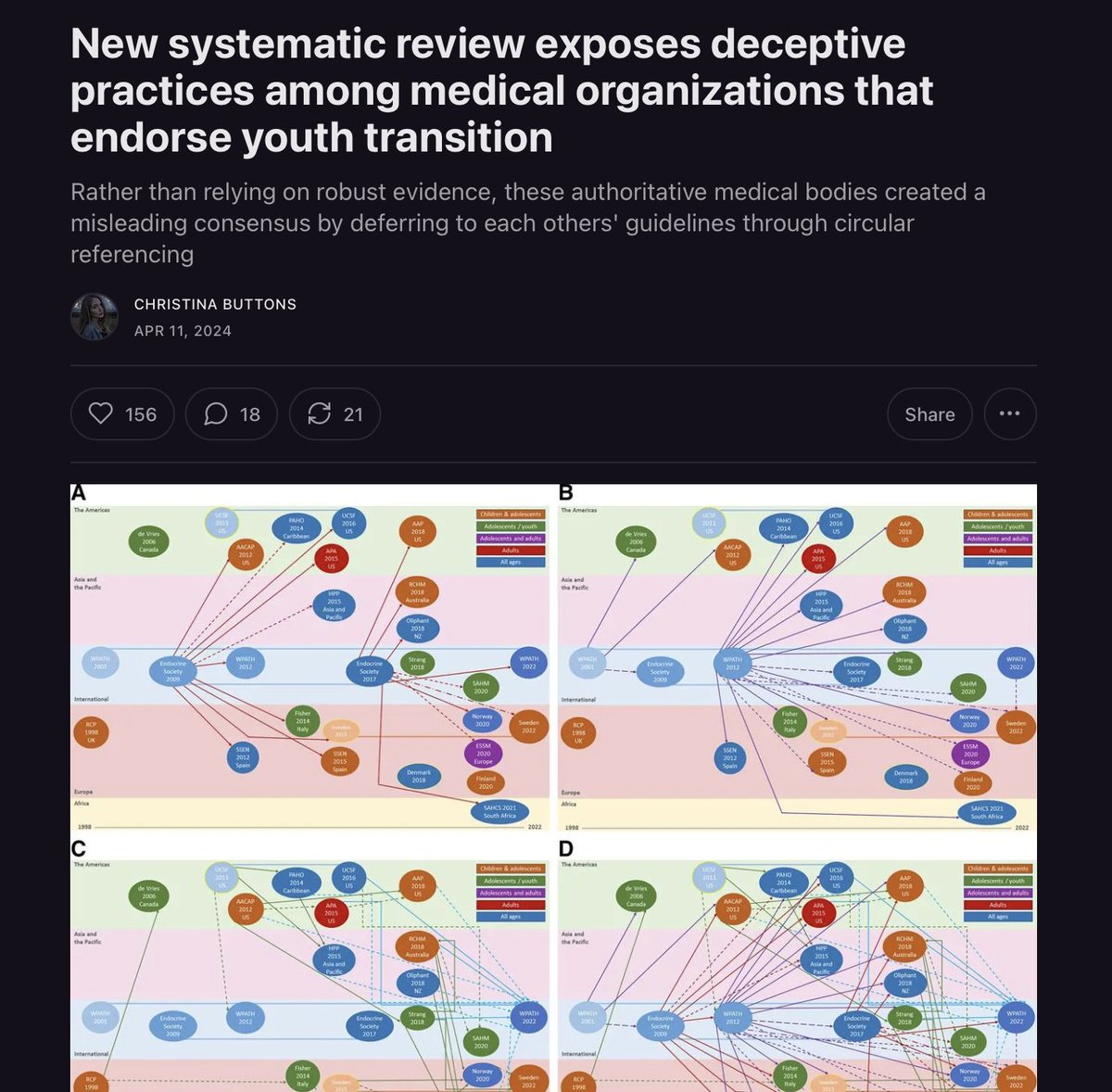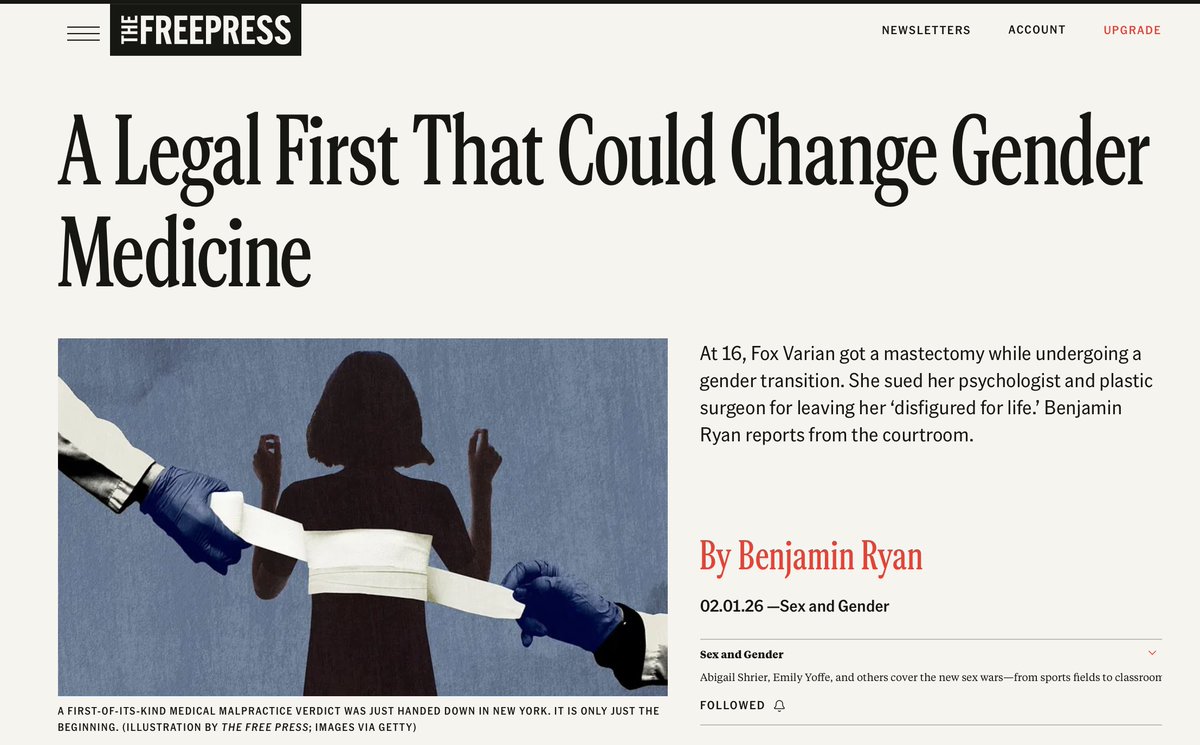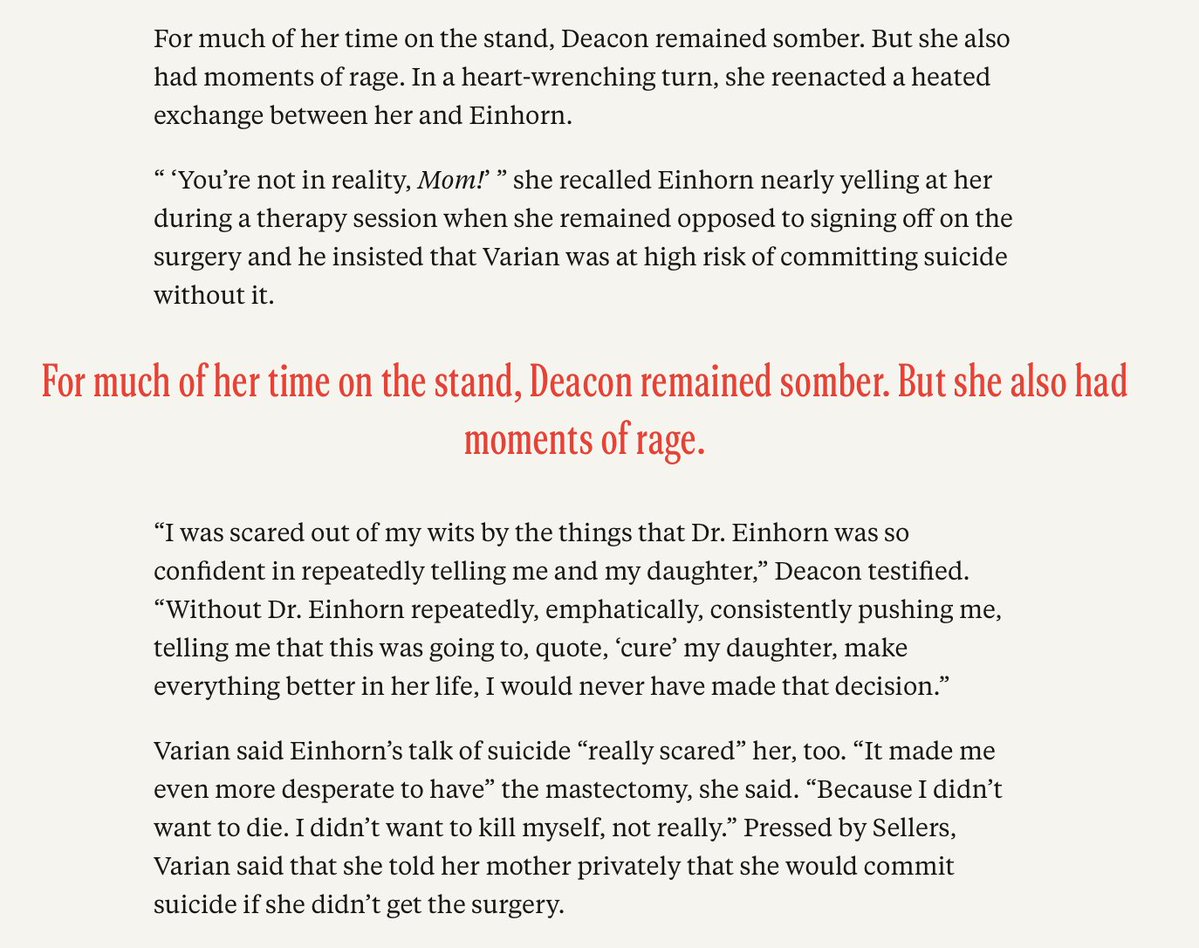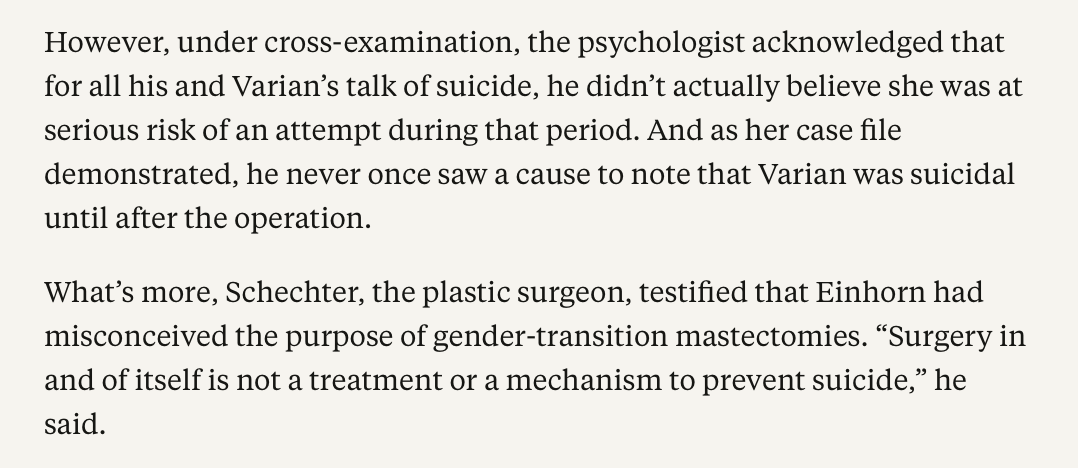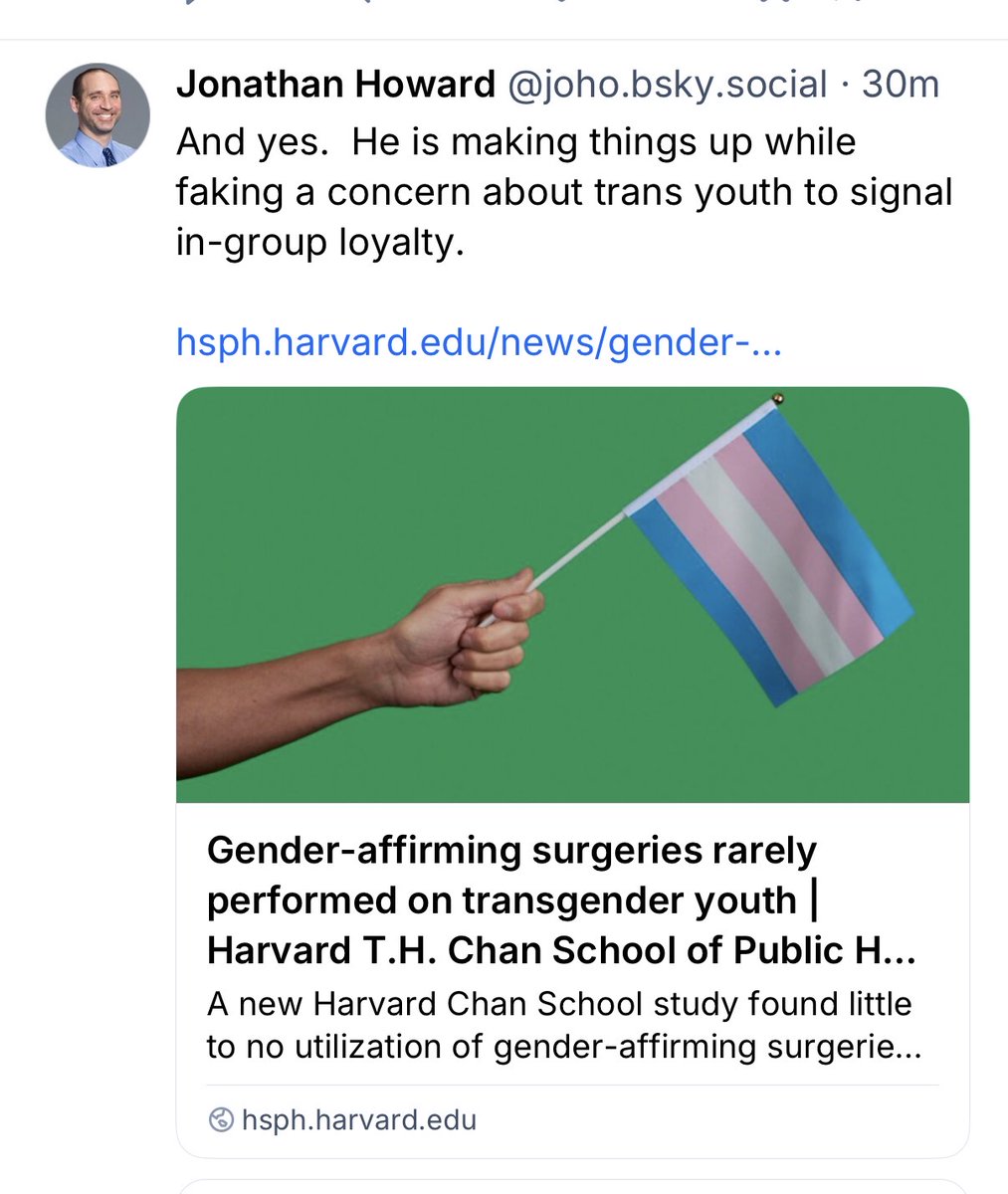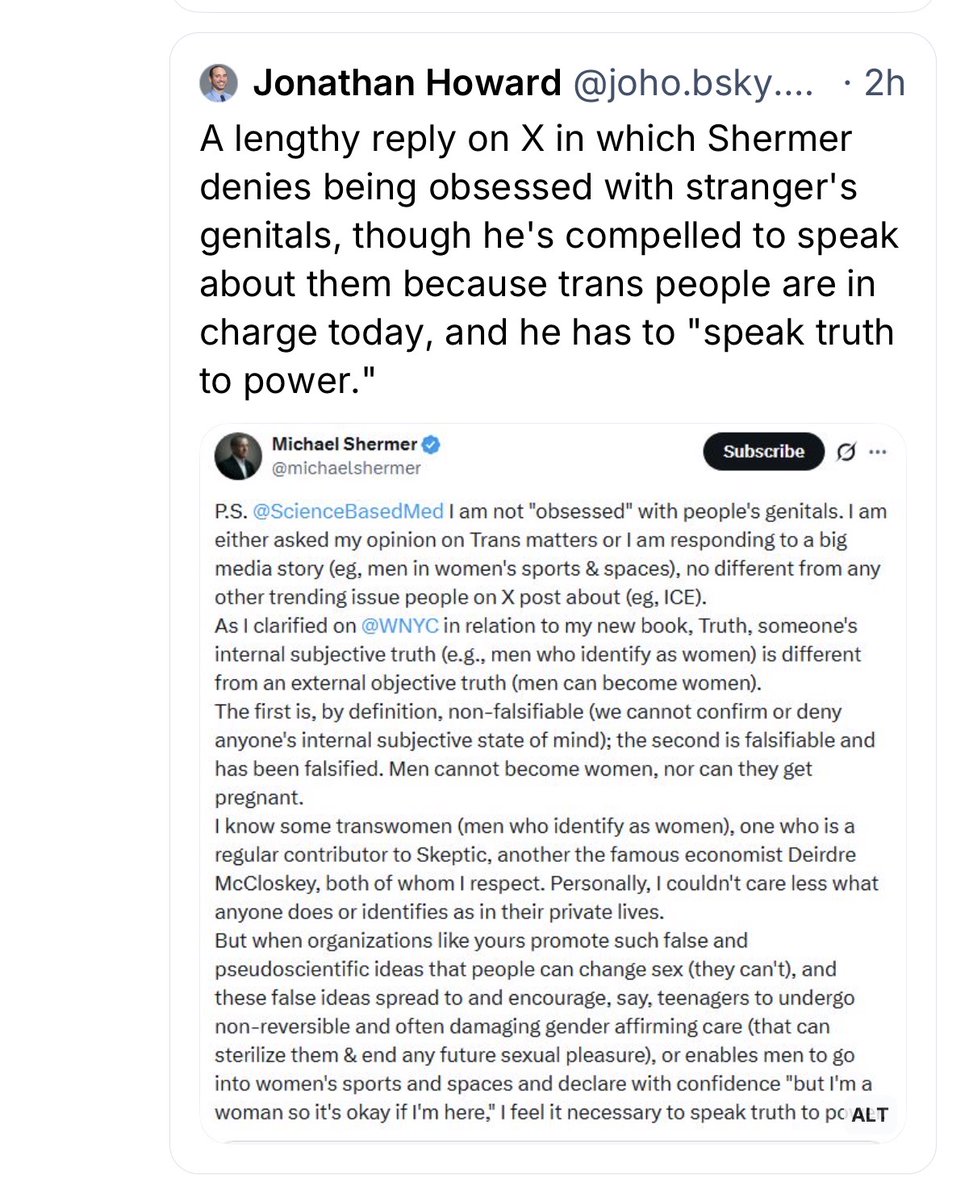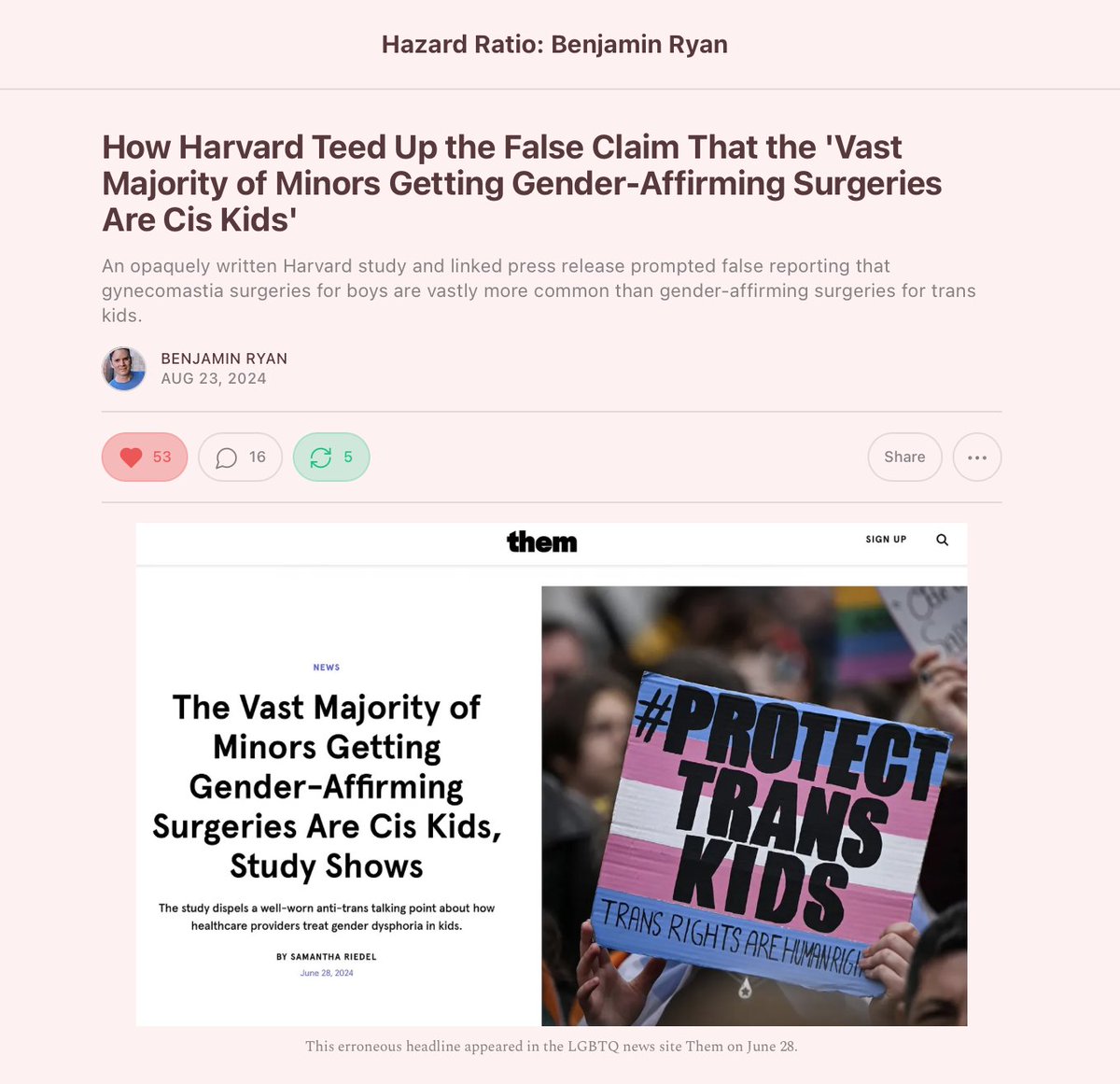The American Academy of Pediatrics and the Endocrine Society, the two most influential US medical societies in pediatric gender medicine, have issued their first known statements on England's Cass Review on the subject, to @WBUR's @OnPointRadio:
STATEMENT FROM AMERICAN ACADEMY OF PEDIATRICS: Statement from American Academy of Pediatrics President, Dr. Ben Hoffman:
“The AAP’s gender -affirming care policy, like all our standing guidance, is grounded in evidence and science. Pediatricians understand the complexities of gender-affirming care and they know how to counsel families. The goal is not a certain treatment or timeline, but instead to listen to the patient and create a safe environment to address their needs. “What we’re seeing more and more is that the politically infused public discourse is getting this wrong — and it’s impacting the way that doctors care for their patients.
Physicians must be able to practice medicine that is informed by their medical education, training, experience, and the available evidence, freely and without the threat of punishment. Instead, state legislatures have passed bills to ban and restrict gender-affirming care, which means that right now, for far too many families, their zip code determines their ability to seek the health care they need. Politicians have inserted themselves into the exam room, and this is dangerous for both physicians and for families.”
STATEMENT FROM AMERICAN ACADEMY OF PEDIATRICS: Statement from American Academy of Pediatrics President, Dr. Ben Hoffman:
“The AAP’s gender -affirming care policy, like all our standing guidance, is grounded in evidence and science. Pediatricians understand the complexities of gender-affirming care and they know how to counsel families. The goal is not a certain treatment or timeline, but instead to listen to the patient and create a safe environment to address their needs. “What we’re seeing more and more is that the politically infused public discourse is getting this wrong — and it’s impacting the way that doctors care for their patients.
Physicians must be able to practice medicine that is informed by their medical education, training, experience, and the available evidence, freely and without the threat of punishment. Instead, state legislatures have passed bills to ban and restrict gender-affirming care, which means that right now, for far too many families, their zip code determines their ability to seek the health care they need. Politicians have inserted themselves into the exam room, and this is dangerous for both physicians and for families.”

Here is the Endocrine Society's statement on the Cass Review, given to @WBUR's @OnPointRadio. In short, "Medical evidence, not politics, should inform treatment decisions."
STATEMENT FROM ENDOCRINE SOCIETY: We stand firm in our support of gender-affirming care. Transgender and gender-diverse people deserve access to needed and often life-saving medical care.
NHS England’s recent report, the Cass Review, does not contain any new research that would contradict the recommendations made in our Clinical Practice Guideline on gender-affirming care.
The guideline, which cites more than 260 research studies, recommends a very conservative approach to care, with no medical intervention prior to puberty. Estimates indicate only a fraction of transgender and gender-diverse adolescents opt to take puberty-delaying medications, which have been used to treat early puberty in youth for four decades.
• The guideline recommends beginning treatment with puberty-delaying medications that are generally reversible.
• As adolescents grow older and can provide informed consent, then hormone therapy can be considered.
• Our guideline suggests waiting until an individual has turned 18 or reached the age of majority in their country to undergo gender-affirming genital surgery.
Medical evidence, not politics, should inform treatment decisions.
Our Clinical Practice Guidelines are developed using a robust and rigorous process that adheres to the highest standards of trustworthiness and transparency as defined by the Institute of Medicine (now the National Academy of Medicine).
Our guideline development panels spend years developing each guideline based on a thorough review of medical evidence, author expertise, rigorous scientific review, and a transparent process.
More than 18,000 Endocrine Society members worldwide have an opportunity to comment on guideline drafts prior to publication.
The Society is in the process of updating the 2017 Clinical Practice Guideline. It was one of six selected for a routine update.
The process will incorporate the latest research and conduct systematic reviews to provide guidance on the safe and effective treatment of gender incongruence and dysphoria from an endocrine perspective.
We agree that increased funding for youth and adult transgender health research programs is needed to close the gaps in knowledge regarding transgender medical care and should be made a priority.
Although the scientific landscape has not changed significantly, misinformation about gender-affirming care is being politicized.
In the United States, 24 states have enacted laws or policies barring adolescents’ access to gender-affirming care, according to the Kaiser Family Foundation. In seven states, the policies also include provisions that would prevent at least some adults over age 18 from accessing gender-affirming care.
Cisgender teenagers, together with their parents or guardians, are deemed competent to give consent to various medical treatments.
Teenagers who have gender incongruence and their parents and guardians should not be discriminated against.
Transgender and gender-diverse teenagers, their parents, and physicians should be able to determine the appropriate course of treatment.
Banning evidence-based medical care based on misinformation takes away the ability of parents and patients to make informed decisions.
Medical evidence, not politics, should inform treatment decisions.
STATEMENT FROM ENDOCRINE SOCIETY: We stand firm in our support of gender-affirming care. Transgender and gender-diverse people deserve access to needed and often life-saving medical care.
NHS England’s recent report, the Cass Review, does not contain any new research that would contradict the recommendations made in our Clinical Practice Guideline on gender-affirming care.
The guideline, which cites more than 260 research studies, recommends a very conservative approach to care, with no medical intervention prior to puberty. Estimates indicate only a fraction of transgender and gender-diverse adolescents opt to take puberty-delaying medications, which have been used to treat early puberty in youth for four decades.
• The guideline recommends beginning treatment with puberty-delaying medications that are generally reversible.
• As adolescents grow older and can provide informed consent, then hormone therapy can be considered.
• Our guideline suggests waiting until an individual has turned 18 or reached the age of majority in their country to undergo gender-affirming genital surgery.
Medical evidence, not politics, should inform treatment decisions.
Our Clinical Practice Guidelines are developed using a robust and rigorous process that adheres to the highest standards of trustworthiness and transparency as defined by the Institute of Medicine (now the National Academy of Medicine).
Our guideline development panels spend years developing each guideline based on a thorough review of medical evidence, author expertise, rigorous scientific review, and a transparent process.
More than 18,000 Endocrine Society members worldwide have an opportunity to comment on guideline drafts prior to publication.
The Society is in the process of updating the 2017 Clinical Practice Guideline. It was one of six selected for a routine update.
The process will incorporate the latest research and conduct systematic reviews to provide guidance on the safe and effective treatment of gender incongruence and dysphoria from an endocrine perspective.
We agree that increased funding for youth and adult transgender health research programs is needed to close the gaps in knowledge regarding transgender medical care and should be made a priority.
Although the scientific landscape has not changed significantly, misinformation about gender-affirming care is being politicized.
In the United States, 24 states have enacted laws or policies barring adolescents’ access to gender-affirming care, according to the Kaiser Family Foundation. In seven states, the policies also include provisions that would prevent at least some adults over age 18 from accessing gender-affirming care.
Cisgender teenagers, together with their parents or guardians, are deemed competent to give consent to various medical treatments.
Teenagers who have gender incongruence and their parents and guardians should not be discriminated against.
Transgender and gender-diverse teenagers, their parents, and physicians should be able to determine the appropriate course of treatment.
Banning evidence-based medical care based on misinformation takes away the ability of parents and patients to make informed decisions.
Medical evidence, not politics, should inform treatment decisions.

The @AmerAcadPeds never responded to @JamesCantorPhD's scathing fact check of its 2018 policy statement on the affirmative care model for gender distressed children. Instead, it reaffirmed the policy statement in Aug 2023 with no changes.
ohchr.org/sites/default/…
ohchr.org/sites/default/…
The AAP is subject to a lawsuit from a detransitioner, as I wrote for the @NewYorkSun:
nysun.com/article/lawsui…
nysun.com/article/lawsui…
The AAP has become increasingly secretive about its work on the subject of gender distressed children. nysun.com/article/sued-o…
In its statement to @WBUR, the Endocrine Society says that "only a fraction" of gender distressed children receive medical transition. This after @WPATH said in a statement responding to the Cass Review that the majority of such children would do better to medically transition.
Here is Dr. Hilary Cass's first US interview, on this @WBUR @OnPointRadio podcast:
wbur.org/onpoint/2024/0…
wbur.org/onpoint/2024/0…
• • •
Missing some Tweet in this thread? You can try to
force a refresh


